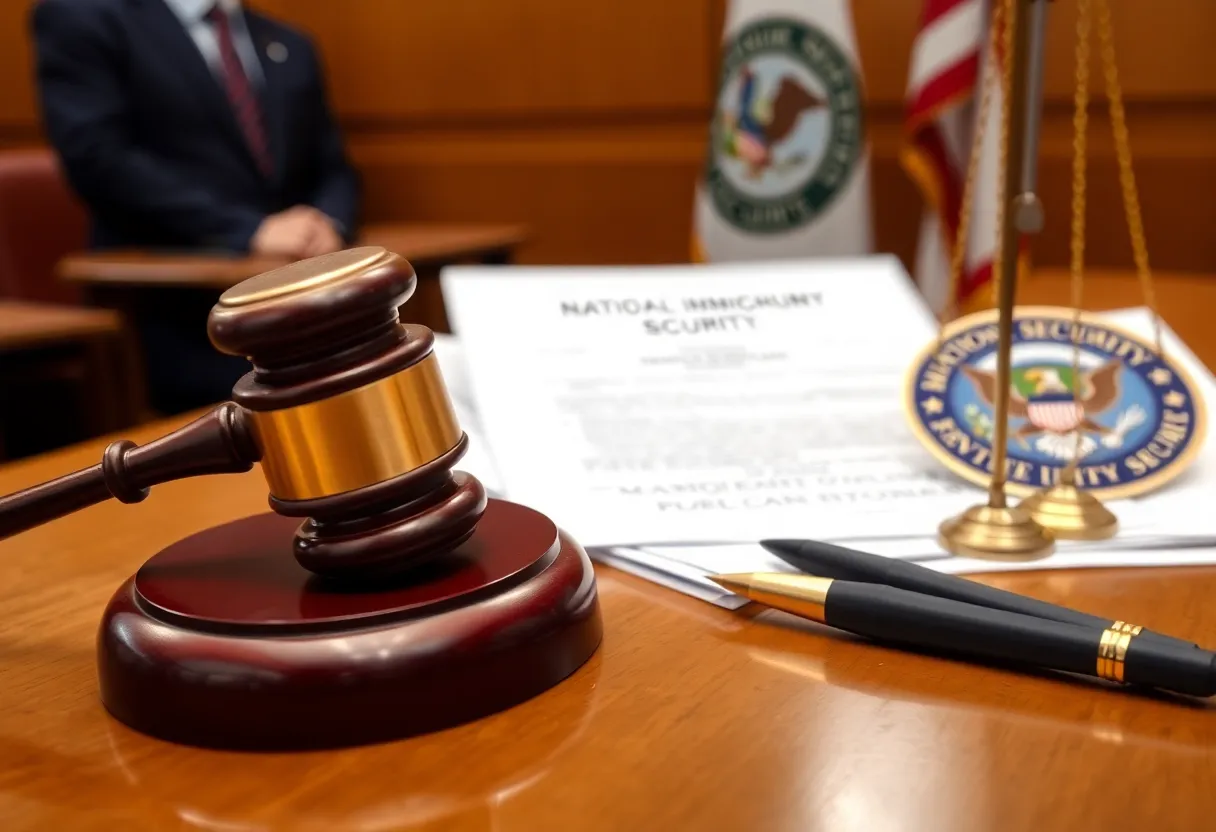

Legal proceedings examining deportation flights and their implications for national security.
The Trump Administration has claimed state secrets privilege to prevent disclosure of deportation flight details amid legal scrutiny. U.S. District Judge Boasberg’s inquiry centers on flights linked to the Venezuelan gang Tren de Aragua, raising questions on national security and judicial oversight. Despite a restraining order, flights continued, igniting controversy over the balance of individual rights and national security under the Alien Enemies Act. The administration appeals the ruling while seeking to lift the restrictions, spotlighting concerns over executive power and immigration policy.
In a recent legal twist, top officials from the Justice Department, including Attorney General Pam Bondi, have officially invoked the state secrets privilege to block a federal judge’s order that sought details about deportation flights. This filing comes after U.S. District Judge James Boasberg raised questions about whether the Trump administration had violated temporary restraining orders regarding the deportation of noncitizens.
Judge Boasberg’s scrutiny was particularly focused on flights deporting individuals who were reportedly associated with the Venezuelan gang known as Tren de Aragua. Despite the Judge’s directives to halt these flights, there were claims that deportation efforts had continued unabated. This raised serious legal concerns and prompted the judicial inquiry into the administration’s actions.
The Justice Department’s argument rests on the assertion that revealing information about these deportation flights could pose a reasonable danger to national security and foreign affairs. In their filing, administration lawyers emphasized that the necessary facts to evaluate compliance with the Judge’s orders were already on the table. They argued that asking for more specifics would not only be unnecessary but could also risk national security interests.
Secretary of State Marco Rubio and Homeland Security Secretary Kristi Noem have also voiced their support for the administration’s stance, claiming that public disclosure of deportation flight details could harm diplomatic relations and the safety of the U.S. Yet, this claim rings alarm bells for many observers who worry about the erosion of judicial oversight in matters of immigration and national security.
As part of his inquiry, Judge Boasberg requested precise information regarding the timings and the specifics of these deportation flights, including when they took off and how many individuals were being transferred to El Salvador. The administration’s contention, however, is that compliance with these inquiries could undermine the peace between judicial responsibilities and executive powers.
These deportation flights fall under the contentious provisions of the Alien Enemies Act, which permits expedited removal of individuals without the traditional court process. This legal framework has reopened many discussions about the balance of individual rights versus national security, especially regarding those labeled as gang members.
On March 15, the situation escalated when two deportation flights reportedly took off despite the restraining orders placed by Judge Boasberg. This incident has not only posed questions about legal adherence but has also amplified ongoing tensions between the judicial system and the Executive Branch concerning immigration policy and matters of national security.
The administration is currently appealing Judge Boasberg’s ruling while simultaneously seeking to lift the restraining order that blocks these deportation flights. This unfolding drama reflects the complicated relationship between law enforcement, immigration policy, and individual rights in the face of perceived threats from foreign gangs.
As this situation develops, it brings to the spotlight critical discussions about civil liberties, executive power, and how far national security can extend without infringing upon individual rights. The coming weeks may reveal whether the administration can successfully maintain its deportation policy intact or if the judicial system will assert its authority in matters concerning immigration and national security.
News Summary Newmark is making significant strides in its expansion plans across the U.S. with…
News Summary Residents of South Texas can find relief starting May 30 as FEMA opens…
News Summary North Texas is becoming a leading region for generative AI and AI agents…
News Summary Chevron Corp. is set to lay off over 200 employees in Texas, impacting…
News Summary Severe thunderstorms hit Central Texas, leading to significant damage, power outages, and one…
News Summary Round Rock is preparing for its fourth annual Pride Festival on May 29,…